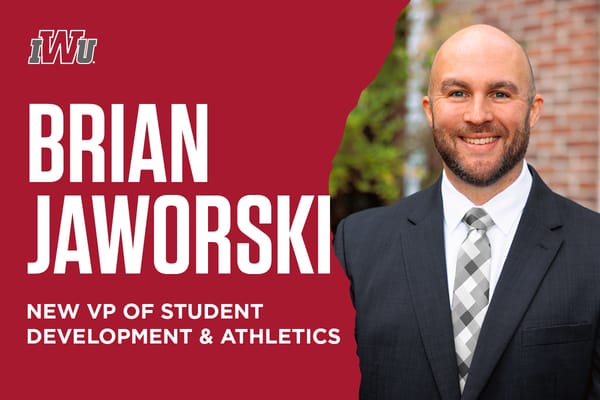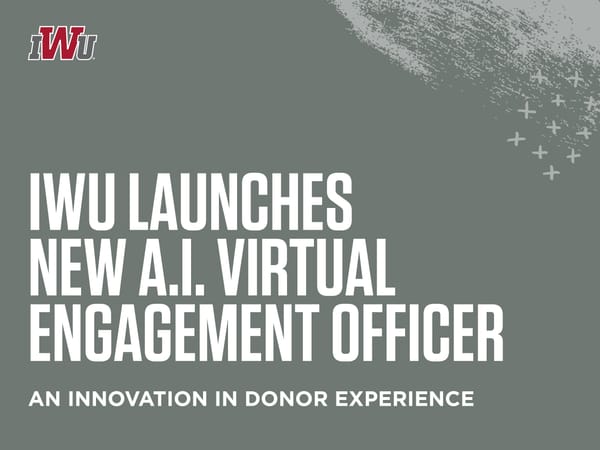The Value of a Faith-Integrated Degree
Once you’ve decided to further your education and pursue a degree, how do you choose which college or university to attend?
By: Emily Dexter & Jake Hreha
Once you’ve decided to further your education and pursue a degree, how do you choose which college or university to attend? There are plenty of factors to consider, from cost-effectiveness to online offerings. Another question to ask is whether you’d benefit from attending a program that values your faith along with your education.
Whether you’re a Christian student or just someone wondering if a Christian school could be a good fit for you, a faith-oriented degree is worth considering. Christian higher education has many benefits to offer. It teaches core cultural values, helps you develop your Christian faith, and continues to push you to live a life more like Jesus.
Here are three key ways that choosing this path can add value and depth to your education:
1. Learn Within a Like-Minded Community
When you choose a college or university, you’re also choosing the community of learners and instructors who will support you on your educational journey. If you attend a faith-based program, that community will include people who value their faith commitments and desire to help one another grow in their relationships with Christ. You will be surrounded by people who want to support you in your Christian life and not follow the culture of the world.
You’ll meet people who are eager to explore new ideas and connect in meaningful ways. It's important to have a community that cares about living devoted to Jesus and be surrounded by a supportive Christian culture. The community you find here can stand with you as you prepare for the bright future ahead of you.
Your time in college is an important period in your life when you develop your own cultural values. Being involved in Christian higher education gives you the opportunity to see the cultural differences between the way the world lives and culture of those following Jesus. There are many different world views that exist today in Western culture, so it's important to understand what influence different cultural value preferences have on your life. Christians need the support of others to grow their faith and be an example for the world.
2. Embrace Your Potential
Choosing a program that prioritizes your faith means you won’t have to compromise your values for the sake of your education. Instead, you’ll have the opportunity to learn from professors and advisers who share your core beliefs and want to help you achieve your God-given potential. While any degree can get you closer to that goal, a faith-integrated degree can get you there with a deeper sense of personal care and theological clarity.
A number of universities disregard Christianity. This can make it challenging for Christian students to be supported and encouraged in their faith. Secular schools will teach a diversity of thought and philosophy that does not line up with a biblical world view. While it's valuable to learn about a particular culture and their differences, it's important that believers have community and are supported in the practice of living like Jesus.
The cultures of faith-based universities are encouraging, inviting, and educationally minded. There is a difference in the way aspects of school are done to encourage community. Arts, music, and time in nature are all great ways to spend time with friends and build community. There is a different attitude when you know your time at school has importance and meaning beyond the classroom.
3. Connect Your Faith and Career
The supportive environment you’ll find in a faith-based program can be the perfect place to explore the link between your faith and career. Whether you are a PHD candidate or just beginning your bachelor's degree, a faith-based university helps develop in all areas of your life. As you connect with like-minded individuals and make new discoveries, you can start to ask yourself questions like:
- Where does your discipline intersect with your commitment to faith?
- What does it mean to advance in your industry while upholding your values and having a positive impact on your community?
- Where might God be directing you as you look to the future?
A faith-integrated program can give you the tools to investigate these questions and many more as you seek to become a more dedicated leader and Christ-follower.
There are plenty of reasons why learners might choose a faith-integrated degree over secular programs. Whether you’re hoping to advance your career, better prepare for life in an ever-changing world, or simply expand your skill set, a faith-based degree can set you on the right path toward success and fulfillment. With more than 160 degree programs, Indiana Wesleyan University has plenty of options to get you there. Visit our programs page today to learn more about how you can achieve your goals while prioritizing your relationship with Christ.
Emily Dexter
Copywriting and Marketing Assistant, IWU-National and Global
Emily Dexter is currently a senior at Indiana Wesleyan University, where she majors in English and writing. She is passionate about all things literary, and in her free time enjoys reading good books, attempting new art projects, and exploring the natural world.
Jake Hreha
SEO Copywriter, IWU
Jake Hreha is a graduate of Ball State University, where he majored in advertising with a concentration in media presentation and design. He is passionate about design, and in his free time he enjoys cycling, traveling, and reading.




